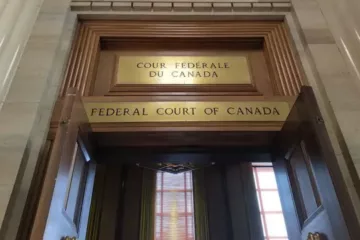Table of contents
In the realm of immigration law, Global Case Management System (GCMS) notes are pivotal documents that provide a detailed account of an immigration officer’s decision-making process. These notes are often used in judicial review cases as evidence to understand the rationale behind certain decisions. However, the practice of redacting sections of GCMS notes has become a common occurrence, leading to significant implications for judicial review processes. This article explores the impact of redacted GCMS notes on judicial review cases, delving into the understanding of these notes, their role, impact, and the challenges in accessing complete information.
Understanding Redacted GCMS Notes in Court Cases
GCMS notes are comprehensive records maintained by immigration officers, documenting the procedural and substantive aspects of an immigration case. These records include detailed observations, assessments, and the rationale behind decisions made by officers. Redactions within these notes can occur for various reasons, including privacy concerns, national security, or to protect the identity of third parties involved. The redaction process, while serving legitimate purposes, can obscure critical information, impacting the transparency and comprehensibility of the notes.
In court cases, especially in judicial reviews, the completeness and clarity of GCMS notes are crucial. These notes serve as an essential tool for judges and legal practitioners to evaluate the legality and reasonableness of an immigration officer’s decision. When significant portions of these notes are redacted, it can hinder the court’s ability to fully understand the context and reasoning behind the decision, potentially affecting the outcome of the case.
The impact of redacted GCMS notes is particularly pronounced in cases where the applicant is challenging the fairness or the procedural aspects of the decision-making process. Without access to the full content of the notes, it becomes challenging for the appellant to argue their case effectively, as they may lack insight into the considerations and evidence that were pivotal to the officer’s decision.
The case of Harkat (Re), 2012 FCA 122 (CanLII), [2012] 3 FCR 635, is highly relevant to understanding the impact of redacted or destroyed evidence on judicial review processes. In this case, the destruction of original evidence by the Canadian Security Intelligence Service (CSIS) significantly hampered Mohamed Harkat’s ability to know and meet the case against him. The Federal Court of Appeal emphasized the necessity for adequate disclosure to ensure a fair hearing, highlighting the balance between national security and procedural fairness. This case underscores the importance of complete and unredacted GCMS notes in judicial review cases to allow individuals to effectively challenge the evidence against them.
Role of Officer’s Notes in Judicial Reviews
Officer’s notes, as documented in GCMS, play a critical role in judicial review cases by providing a transparent account of the decision-making process. These notes are often scrutinized to determine whether the decision was made in accordance with the law and whether it was reasonable based on the available evidence. They offer a window into the thought process of the immigration officer, detailing the factors that influenced the decision and how the officer interpreted the relevant laws and policies.
In judicial reviews, the court’s primary function is not to re-evaluate the merits of the case but to assess the legality and fairness of the decision-making process. Officer’s notes are instrumental in this assessment, as they can reveal whether the officer considered all relevant factors and adhered to procedural fairness. They can also highlight if there was any bias or improper considerations that might have influenced the decision.
However, the redaction of these notes can significantly undermine their role in judicial reviews. When key information is withheld, it can lead to questions about the integrity of the decision-making process. The lack of transparency can erode trust in the fairness of the process, making it difficult for the court to ascertain whether the decision was made on a sound legal basis.
In Charkaoui v. Canada (Citizenship and Immigration), 2008 SCC 38 (CanLII), [2008] 2 SCR 326, the Supreme Court of Canada emphasized the importance of procedural fairness and the duty of the Canadian Security Intelligence Service (CSIS) to retain and disclose relevant information in security certificate proceedings. The case highlighted that the destruction of operational notes by CSIS breached their duty to retain and disclose information necessary for a fair review, which is essential for protecting the individual’s rights to procedural fairness. This case underscores the necessity of access to evidence for fair judicial reviews, which is directly relevant to the issue of redacted GCMS notes.
Analyzing Impact on Legal Proceedings
The redaction of GCMS notes can have far-reaching implications on legal proceedings, particularly in the context of judicial reviews. When notes are heavily redacted, it can create an uneven playing field, where the applicant is at a disadvantage due to limited access to the full context of the decision. This can lead to challenges in mounting an effective legal argument, as the applicant may be unable to pinpoint specific errors or omissions in the officer’s reasoning.
Moreover, the redaction of GCMS notes can prolong legal proceedings. Lawyers may need to request additional disclosure, file motions to obtain unredacted versions, or seek alternative evidence to fill in the gaps left by the redactions. This can lead to increased legal costs and delays, burdening both the appellants and the judicial system.
The impact of redacted GCMS notes is also felt in the court’s ability to deliver justice. Incomplete information can result in decisions that may not fully address the nuances of the case, potentially leading to unjust outcomes. This underscores the importance of balancing the need for confidentiality and privacy with the principles of transparency and fairness in legal proceedings.
Challenges in Accessing Complete Information
Accessing complete GCMS notes can be fraught with challenges, primarily due to the inherent tension between the need for transparency and the necessity of maintaining confidentiality. Immigration authorities often redact sections of these notes to protect sensitive information, but this can lead to frustration and obstacles for applicants seeking to understand the full scope of their cases.
One of the primary challenges in accessing complete information is the lack of clarity regarding the criteria used for redaction. Applicants and their legal representatives may find it difficult to determine whether the redactions are justified, leading to disputes over the necessity and extent of withheld information. This lack of transparency can complicate the process of challenging the redactions and seeking full disclosure.
Furthermore, the process of obtaining unredacted GCMS notes can be time-consuming and cumbersome. Legal practitioners may need to engage in prolonged negotiations with immigration authorities or resort to legal remedies to gain access to the complete notes. This can place an additional burden on appellants, who may already be facing the complexities of navigating the immigration system, and can affect their ability to present a comprehensive case.
The practice of redacting GCMS notes in judicial review cases presents significant challenges and implications for appellants and the judicial system as a whole. While redactions serve necessary purposes, such as protecting privacy and national security, they can also obscure critical information, impacting the fairness and transparency of legal proceedings. Understanding the role and impact of officer’s notes in judicial reviews is essential for ensuring that decisions are made on a sound legal basis. Addressing the challenges of accessing complete information requires a delicate balance between confidentiality and transparency, to uphold the principles of justice and fairness in the legal process.
Frequently Asked Questions
- What are GCMS notes?
- How are GCMS notes used in judicial review cases?
- Why are parts of GCMS notes often redacted?
- What impact do redacted GCMS notes have on judicial review cases?
- Why is transparency important in GCMS notes?
- How do redactions affect an applicant’s ability to argue their case?
- What is the role of GCMS notes in assessing procedural fairness?
- How do officer’s notes contribute to judicial reviews?
- How do redacted GCMS notes impact legal proceedings?
- What legal challenges arise from redacted GCMS notes?
- Why do courts need unredacted GCMS notes?
- What is the balance between confidentiality and transparency in GCMS notes?
- How can redacted notes prolong legal proceedings?
- What challenges do applicants face in accessing unredacted GCMS notes?
- Why might GCMS note redactions be challenged in court?
- What is the impact of GCMS redactions on the immigration system?
GCMS notes, or Global Case Management System notes, are detailed records maintained by immigration officers that document the decision-making process in immigration cases.
In judicial review cases, GCMS notes are used as evidence to understand the rationale behind immigration decisions, helping judges evaluate the legality and reasonableness of these decisions.
Parts of GCMS notes may be redacted to protect privacy, national security, or the identity of third parties involved, balancing transparency with confidentiality.
Redacted GCMS notes can hinder the court’s ability to fully understand the decision-making process, potentially affecting the fairness and outcome of judicial review cases.
Transparency in GCMS notes allows judges and legal practitioners to assess the fairness and legality of immigration decisions, ensuring that the process aligns with the principles of justice.
Redactions can limit an applicant’s insight into the considerations behind an immigration decision, making it challenging to identify errors or biases in the decision-making process.
GCMS notes document whether immigration officers considered all relevant factors and followed fair procedures, which is essential for evaluating procedural fairness in judicial reviews.
Officer’s notes in GCMS provide a transparent account of the decision-making process, revealing factors that influenced the decision and helping assess its legality and reasonableness.
Redacted GCMS notes can disadvantage applicants, create delays, and increase legal costs by limiting access to critical information needed for a fair review process.
Applicants may face obstacles in accessing complete information, which can hinder their ability to mount effective legal arguments in judicial review cases.
Unredacted GCMS notes allow courts to fully evaluate the decision-making process and assess whether decisions were made on a sound legal basis.
Redactions must balance the need to protect privacy and national security with the need for transparency to uphold fairness in legal proceedings.
Redacted notes may lead to requests for additional disclosure and legal motions, which can delay proceedings and increase legal costs.
Applicants may face prolonged negotiations, legal remedies, and disputes over redactions, complicating their ability to present a full case.
Redactions may be challenged if they are seen as obstructing transparency or preventing a fair review of the decision-making process.
Redactions in GCMS notes can strain the judicial system by creating delays, increasing costs, and raising questions about procedural fairness and transparency.



0 Comments